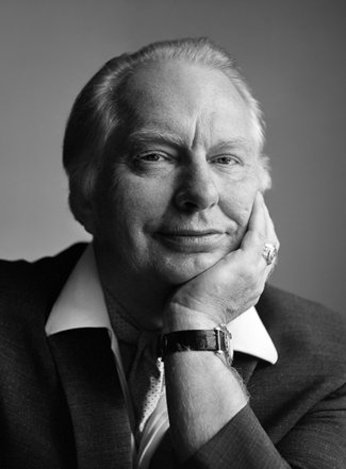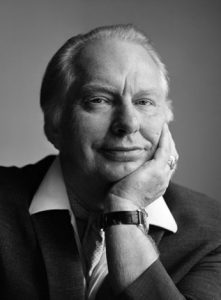
Scientologists Celebrate 110th Anniversary of L. Ron Hubbard’s Birth
- By Sam Field --
- 12 Mar 2021 --

Founder of the Scientology religion
In 1950 Hubbard shattered the status quo in mental treatment with his New York Times bestseller, Dianetics the Modern Science of Mental Health, and went on to found the Scientology religion in 1953. The aims of Scientology, he said, were: “A civilization without insanity, without criminals and without war, where the able can prosper and honest beings can have rights, and where Man is free to rise to greater heights.”
Hubbard has many achievements to his credit, among those his career as a writer, the author of Dianetics and other books on the mind, and the founder of the only major religion to begin in the 20th century, which means that some of his lectures in his own voice are available on the Internet for those who are skeptical or merely curious.
Dianetics, published in 1950, arrived at a crucial time in world history. The Cold War was on, and the CIA was secretly running MK-ULTRA and other mind-control projects in colleges around the United States using drugs, electroshock and hypnosis. Psychiatry operated almost as a secret society and Dianetics demystified the operation of the mind, explained mental phenomena and put Dianetics techniques into the hands of millions of ordinary people.
Hubbard was also known for his implacable opposition to shock therapy, lobotomies, psychopharmaceuticals, involuntary institutionalization and other psychiatric practices he termed “barbaric.”
Needless to say, a man who stepped on so many toes made enemies. But he continued undeterred, delivering some 3,000 public lectures on Dianetics and Scientology and writing and publishing thousands of pages of teachings. Today, Scientology has expanded to a network of 11,000 churches, missions and groups around the world. The church now has its own television station (Scientology.tv), as well as social betterment groups to counter drug abuse, help mitigate disasters, promote educational reform and forward a common-sense moral code called “The Way to Happiness.”
Hubbard detailed his approach to dealing with adversity and opposition in a lecture titled: What is Greatness. “A primary trap,” he said, “is to succumb to invitations to hate … To do one’s task without becoming furious at others who seek to prevent one is a mark of greatness – and sanity. Only then can one be happy … greatness does not stem from savage wars or being known. It stems from being true to one’s own decency, from going on helping others whatever they do or think or say and despite all savage acts against one.”
There is some fundamental truth in this statement, which could explain, in part, why the movement continues to grow, and it could serve as good advice in a time of political turmoil, hate speech, attacks on churches, mosques, synagogues and temples, and legal clashes that put religious liberty at risk. Hubbard died in 1986, but his work is perhaps today more relevant than ever.


















